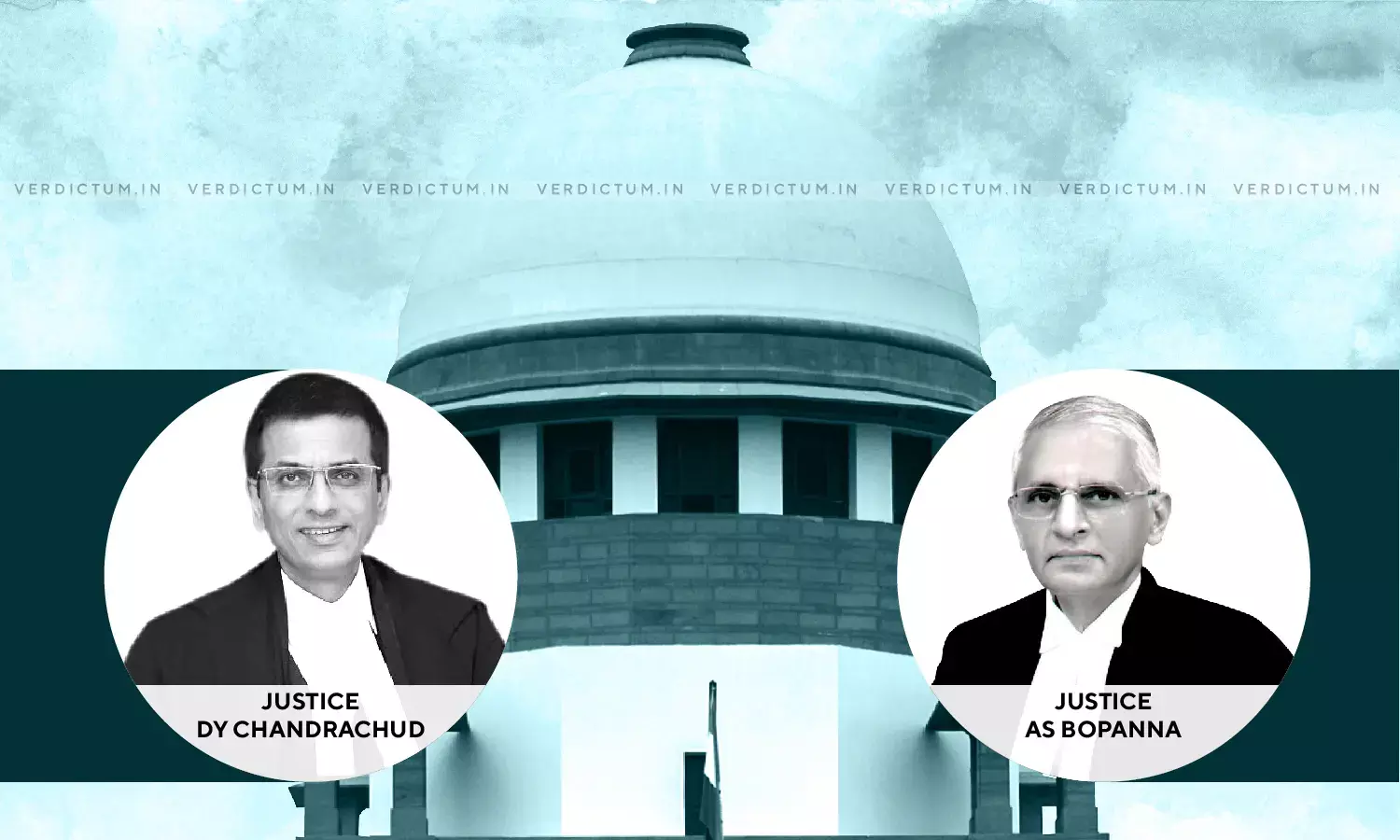Delegated Legislation Must Be In Conformity With Enactment Of Legislature Which Authorises Its Making: SC Reiterates
Delegated Legislation Must Be In Conformity With Enactment Of Legislature Which Authorises Its Making: SC Reiterates

The Supreme Court in the case Talli Gram Panchayat Appellant vs Union of India and Ors. reiterated the settled principle that delegated legislation must be in conformity with the enactment of the legislature which authorises its making.
"This must however, be understood in the perspective of the fact that the Attorney General had placed a solemn assurance before the Court that the rule would be rectified to bring it in conformity with the parent enactment and the decisions of this Court. Implicit in this is the settled principle that delegated legislation must be in conformity with the enactment of the legislature which authorises its making. A rule cannot rise above the source of power.", the Bench of Justice Dhananjaya Y Chandrachud and Justice AS Bopanna observed.
In this case, the Ministry of Environment, Forest and Climate Change (MoEFCC) had granted environment clearance to respondent-Ultratech Cement Limited for limestone mining.
The appellant-Talli Gram Panchayat challenged the environmental clearance granted to the respondent on several grounds including that if mining is permitted it would have severe effect of environment and ecology and also the life and livelihood of the villagers.
The appellant obtained leave to file an application for condonation of delay since the appeal was filed beyond the prescribed period of 30 days. The appeal along with the application for condonation of delay was heard on 24 November 2017. In view of the position of law in Save Mon Region Federation v. Union of India, the Tribunal sought a clarification on whether the environment clearance which was uploaded on the website was accessible to and could have been downloaded by the public.
In December 2017 the MoEFCC introduced an amendment to the National Green Tribunal (Practice and Procedure) Rules 2011 which allowed the constitution of single member Benches in exceptional circumstances.
Later the National Green Tribunal Bar Association (Western Bench) challenged the said amendment on the ground that it contravened the provision that each Bench shall consist of an equal number of judicial and expert members.
On 31 January 2018, the Supreme Court in the petition challenging the validity of the government order directed that the Chairperson of the NGT shall not constitute a single member Bench and each bench shall consist of one judicial member and an expert member. Subsequently, the acting Chairperson of the NGT issued an order that no single member Bench shall be constituted in any zonal benches with immediate effect.
The appellant preferred an application for recall of the order of the single member along with an application for condonation of delay in moving the application a year after the order sought to be recalled was passed. The Tribunal dismissed both the applications observing that even if the prayer for recall of the order is granted, the application of condonation of delay in filing the appeal cannot be allowed.
The appellant approached Supreme Court challenging the order of the Tribunal on the ground that the order passed by the single member was null and void because the constitution of a bench comprising of a single member is in contravention of Section 4(4)(c) of the NGT Act 2010.
Advocate Abhimanue Shrestha appeared for the appellant whereas Advocate Deepanwita Priyanka appeared for respondent-state.
The Court observed that the single member of the NGT who dismissed the application for condonation of delay had, in other cases, abstained from passing any judicial order on the ground that there was a stay on the composition of a single member bench.
The Court noted that it had vide order 31 January 2018 directed "in the meantime, the Chairperson shall not constitute a Single Member Bench….". The Court held that the phrase "in the meantime' elucidates that during the time the executive deliberates on the dissonance of the Rule with the Act and judgments, there shall be a restraint on its implementation.
"Thus, it is evident from the phraseology of the order that this Court intended that there be an interdict on the constitution of single member benches constituted in purported exercise of the power conferred by the rule. The assumption of jurisdiction by a single member Bench clearly stands vitiated. The Single member could not have passed an order in view of the proviso to Section 4(4)(c) of the NGT Act 2010 which states that the number of expert members hearing the appeal or application shall be equal to the number of judicial members, mandating that there shall be at least one expert member on the Bench.", the Court observed.
Accordingly the Court allowed the appeal and set aside the impugned order of NGT dismissing application for condonation of delay and application for recall of the order of single member bench.
Click here to read/download the Judgment

